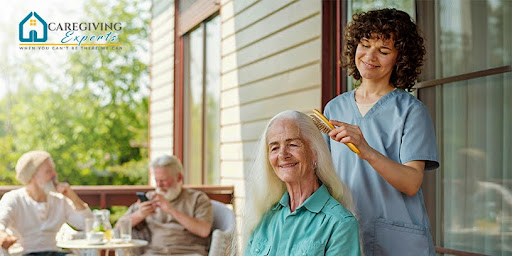Introduction
As our loved ones age, ensuring they receive the care and support they need becomes a top priority. Professional elder care services offer comprehensive assistance tailored to the unique needs of elderly adults. From home care to specialized support for various health conditions, these services aim to maximize the quality of life for seniors. In this article, we’ll explore the various aspects of professional elder care and how they contribute to enhancing the well-being of elderly individuals.
Senior Care Services – Home Care and Support for Elderly Adults
-
Understanding the Role of Home Care Services
Home care services provide elderly adults with the support they need to remain independent and comfortable in their own homes. From assistance with daily activities to companionship, home care services cater to the individual needs of each senior.
-
Benefits of Home Care for Older Adults
Home care offers numerous benefits, including personalized care plans, familiar surroundings, and the ability to maintain routines and independence. With home care, seniors can receive the support they need while remaining in the comfort of their own homes.
-
Personalized Care Plans for Seniors
Professional elder care providers create personalized care plans for each senior based on their unique needs and preferences. These care plans may include assistance with activities of daily living, medication management, and specialized support for medical conditions.
-
Ensuring Comfort and Independence at Home
Home care services focus on preserving the dignity and independence of seniors while providing the support they need to remain safe and comfortable at home. By addressing the individual needs of each senior, home care providers help maximize their quality of life.
Addressing Physical Ailments
-
Managing Chronic Health Conditions
Many seniors experience chronic health conditions that require ongoing management and support. Professional elder care services provide assistance with medication management, medical appointments, and lifestyle modifications to help seniors manage their health conditions effectively.
-
Promoting Mobility and Physical Activity
Physical activity is essential for maintaining mobility and overall health in seniors. Elder care services may include assistance with exercises, mobility aids, and transportation to help seniors stay active and engaged.
-
Assisting with Activities of Daily Living (ADLs)
Activities of daily living, such as bathing, dressing, and grooming, can become challenging for seniors as they age. Elder care providers offer assistance with these tasks, allowing seniors to maintain their hygiene and independence.
Supporting Cognitive Health
-
Recognizing Subtle Changes in Cognitive Ability
Cognitive decline is common in seniors, but early detection and intervention can help slow its progression. Elder care providers are trained to recognize subtle changes in cognitive ability and implement strategies to support cognitive health.
-
Cognitive Stimulation Activities for Seniors
Engaging in cognitive stimulation activities, such as puzzles, games, and social interactions, can help seniors maintain mental acuity and delay cognitive decline. Elder care services may include structured activities designed to stimulate cognitive function.
Daily Assistance Options
-
Short-Term Help During Recovery
After an illness, injury, or surgery, seniors may require short-term assistance with daily activities as they recover. Elder care services offer temporary support to help seniors regain their independence and mobility.
-
Long-Term Daily Assistance Services
For seniors who require ongoing assistance with daily activities, long-term elder care services provide consistent support and companionship. These services are tailored to meet the individual needs of each senior and may include assistance with personal care, household tasks, and transportation.
-
Part-Time Help for Flexible Support
Seniors who need assistance on a part-time basis can benefit from elder care services that offer flexible scheduling options. Part-time caregivers provide support for a few hours per week, allowing seniors to maintain their independence while receiving the help they need.
Live-In Assistance for 24-7 Care
-
Providing Around-the-Clock Support
For seniors who require round-the-clock care, live-in assistance offers continuous support and supervision. Live-in caregivers provide assistance with daily activities, medication management, and companionship, ensuring seniors receive the care they need at all times.
-
Benefits of Live-In Care for Seniors and Families
Live-in care offers numerous benefits, including personalized attention, companionship, and peace of mind for families. Seniors can remain in the comfort of their own homes while receiving the support they need to maintain their independence and quality of life.
Personal Hygiene and Bathing Services
-
Professional Bathing Assistance
Bathing assistance is a common service provided by elder care providers, offering support for seniors who may have difficulty bathing independently. Professional caregivers assist with bathing, ensuring seniors receive thorough and safe hygiene care.
Conclusion
Professional elder care services offer invaluable support to elderly adults, allowing them to age gracefully in the comfort of their own homes. By addressing physical ailments, cognitive health, and daily assistance needs, these services play a crucial role in maximizing the quality of life for seniors. Whether it’s short-term help during recovery or 24-7 live-in assistance, there are options available to meet the unique needs of every individual.
Ready to learn more about maximizing quality of life for your elderly loved ones? Explore with Caregiving Experts now!
FAQs
- What types of services are included in elder care?
Elder care services encompass a wide range of support, including home care, assistance with daily activities, medical management, and companionship.
- How do I know if my loved one needs professional elder care?
Signs that indicate a need for professional elder care include difficulty with daily activities, frequent falls or accidents, cognitive decline, and the need for specialized medical attention.
- Are elder care services covered by insurance?
Depending on the type of care needed and individual insurance policies, some elder care services may be covered partially or fully by insurance plans. It’s essential to check with the provider and insurance company for specific coverage details.
- Can I customize the care plan for my loved one?
Yes, professional elder care services typically offer personalized care plans tailored to the unique needs and preferences of each individual. Families can work with care providers to customize services according to their loved one’s requirements.
- What qualifications do elder care professionals have?
Elder care professionals often have backgrounds in nursing, caregiving, social work, or related fields. They undergo training to meet the specific needs of elderly clients and may hold certifications or licenses depending on the type of care provided.


